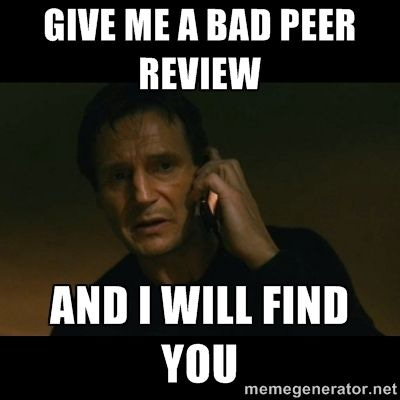Hold Your Team Accountable Without Being a Helicopter Manager
Everyone is accountable, not just a leader.
Do you feel like you have to hover over your team?
Leading a team is sometimes a work for a herding dog. You need to gather, herd, and protect your team.
On top, you need to monitor almost every detail of their work, and frequently intervene in tasks or decisions because otherwise, the needle does not move.
Exhausting.
When the lack of accountability creeps into your team, someone has to do it. Sadly, people quickly get used to it and let leaders make decisions and count them for mistakes.
You don’t want that.
People should feel accountable and not rely on managers as the go-to problem-solvers. You get four strategies to do something about it.
1. Define clear roles and responsibilities
Do you know this saying: “When everyone is responsible, no one is accountable?”
I often think about it when multiple people work on the same thing. Personalities clash. Roles in team clash. Who makes decisions?
Imagine your work is a pool. To enjoy swimming, you want clear and clean water and lines. So, you can do your routine without others jumping on you or crossing your line all the time.
But teams often have the pool with blurry water, dirt, and people jumping around on each other’s heads.
Ask yourself: “Has every team member a well-defined role with specific responsibilities?” If you doubt or say no. Well, you may have accountability trouble (dirty pool!)
In principle, when everyone knows exactly what they are accountable for, it reduces the tendency to defer decisions or tasks to the manager. Likewise, people cannot play a victim.
If it is not done, it’s because of you.
Start by looking at what should be done, and what skills you have in your team, and make sense of it.
2. Ownership culture
Everyone should want to become an expert in their area. They should have a growth mindset and be self-starters.
Yes. Yes. It sounds nice, doesn’t it?
But honestly, who is like that? Especially, when you can go to your manager and ask them to solve it for you. Easy.
There is one trick that helps you to make people accountable and take ownership.
Let them make a decision.
Instead of telling them to do this or that. Let them come up with options and decide.
If you decide and it’s wrong, you can be angry about yourself and have a desire to fix it. If your leader decided for you, you could kind of ignore it. Their fault.
Your team members take ownership by being involved. They might not like it at the beginning. But it could refresh your team's culture a lot. Let them come up with goals, processes, and innovation.
Land safely. Because finally, you could breathe.
3. Peer-to-peer feedback
Surprise!
Well, not really. Communication is a solution to everything. If people can tell each other off, they can hold each other accountable.
Why should managers always be the bad ones? How about creating a feedback culture?
Dream big. Team meetings are fueled by people talking and helping each other improve. They share knowledge, and fun, and are genuinely engaged with what they do.
Feedback is 360. You don’t need a manager to tell you what you can improve and work on. All you need is the guts to ask directly around. Your teammates are watching you.
Take advantage of working with a team. Drive peer feedback and accountability.
4. Consequences and Rewards
Unpopular strategy, perhaps.
One of my colleagues did not care about what reports he delivered. He didn’t check them, and even put random numbers in. He cheated clients. What happened to him? Nothing.
When he left the company, another colleague took over his job and had a lot to explain to the client when mistakes were discovered.
The corporate umbrella covers well cases like this one. But how do you want to hold people accountable without consequences?
When you do your job. - Okay
When you don’t do your job. - Okay, too?
Every team needs to have a system where there are clear consequences for not meeting expectations and likewise rewards for exceeding them.
It does not have to be dramatic. Think of things such as recognition in team meetings, bonuses, or additional training or supervision if responsibilities are consistently neglected.
Link accountability directly to tangible outcomes. Only then your team members are likely to take their responsibilities seriously.
Don’t hover over them, they should know what they are supposed to do.
TL;DR
Helicopter managers can have an incapable team. But they might also miss the basic mark of having role clarity, ownership, no feedback culture, and no consequences.
Why bother when it’s someone else’s problem?
Do you solve it for them? Maybe it’s time not to. Let’s go to work now! Ivona
On the menu:
Monday Case Study: The Right Amount of Feedback
Thursday Newsletter: 5 Little Habits to Improve Your Communication





